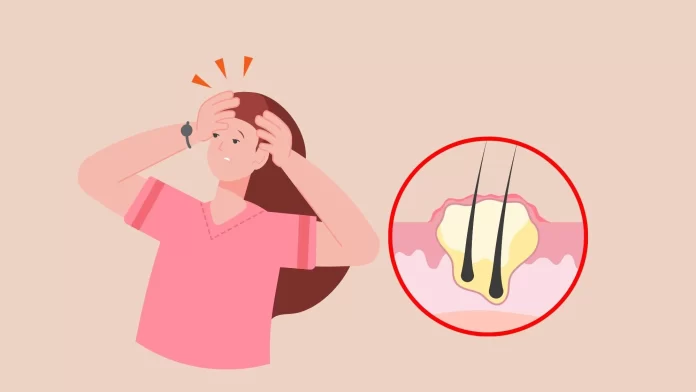Estimated reading time: 0 minutes
Folliculitis, characterized by the inflammation of hair follicles, is a prevalent skin condition that can affect individuals of any age. Though typically seen as a benign issue that resolves on its own, if left untreated or poorly managed, folliculitis can escalate into chronic problems and lead to serious complications, impacting a person’s skin health and overall well-being. This detailed discussion aims to shed light on the potential complications stemming from folliculitis and underscores the necessity for effective management and early intervention.
Chronicity and Recurrence of Folliculitis
One of the major challenges with folliculitis is its tendency to recur, turning a once acute issue into a chronic condition. This cyclical pattern of flare-ups can be particularly troublesome, leading to prolonged discomfort and an increased likelihood of developing more serious complications. Contributing factors such as inadequate shaving techniques, the frequent wearing of tight clothing, and poor personal hygiene can exacerbate the condition, promoting a persistent cycle of inflammation.
The Threat of Bacterial Infections
Folliculitis often begins as a mild infection caused by common bacteria like *Staphylococcus aureus*. However, without appropriate care, this can progress to more severe bacterial infections. If bacteria invade deeper layers of the skin, it may lead to the formation of furuncles or carbuncles—deep, painful clusters of boils that require professional medical treatment to prevent the spread of infection. These conditions are not only painful but can also lead to significant scarring and require systemic treatment with antibiotics.
Fungal Infections and Their Implications
Fungal organisms, such as *Pityrosporum ovale* (also known as *Malassezia*), can also be culprits behind folliculitis. This type of folliculitis is particularly prevalent in warm, humid environments and can trigger intense itching and inflammation. While antifungal medications are typically effective, failure to alter environmental and personal factors that encourage fungal growth can lead to recurrence, hindering long-term resolution.
Scarring and Changes in Pigmentation
Chronic or improperly treated folliculitis can result in scarring. This is more common when infections are deep and when inflammation is severe. Such scarring can be distressing, especially when it occurs in visible areas like the face and neck. Additionally, individuals with darker skin may experience post-inflammatory hyperpigmentation, where the skin in the affected areas darkens, which can be cosmetically concerning and difficult to reverse.
Permanent Damage to Hair Follicles
Repeated bouts of severe folliculitis can permanently damage hair follicles, leading to scarring alopecia—a permanent form of hair loss where scar tissue replaces hair follicles. This complication can profoundly affect a person’s appearance and self-esteem, highlighting the importance of managing folliculitis effectively to prevent such outcomes.
The Risk of Systemic Infections
Though rare, the bacteria responsible for folliculitis, particularly aggressive strains of *Staphylococcus aureus*, can enter the bloodstream and cause systemic infections. This severe complication, known as bacteremia or sepsis, is life-threatening and necessitates immediate medical intervention. Signs of systemic infection include high fever, chills, and a rapid heartbeat, among others, signaling the need for urgent care.
Strategies for Prevention and Effective Management
To mitigate the risks associated with folliculitis, adopting comprehensive skin care practices is crucial. Key preventative measures include:
– Maintaining Excellent Hygiene: Regular and thorough washing with gentle soap can help minimize irritation and prevent bacterial or fungal proliferation.
– Proper Shaving Techniques: Using sharp razors, avoiding overly close shaves, and employing protective shaving products can reduce skin trauma and irritation.
– Choosing Appropriate Clothing: Opt for loose and breathable fabrics to minimize friction and reduce sweating, which can aggravate folliculitis.
– Controlling Contributing Health Conditions: Effective management of diabetes, obesity, and other underlying health issues can decrease the risk of severe folliculitis.
Conclusion
While often viewed as a minor annoyance, folliculitis has the potential to develop into a severe and debilitating condition if not properly managed. Understanding the complications associated with folliculitis is crucial for timely and effective intervention. By implementing preventative strategies and seeking timely medical advice, individuals can greatly reduce their risk of enduring the more severe consequences of this common skin disorder. If symptoms persist or exacerbate, consulting a healthcare provider is essential to obtain a tailored treatment plan and ensure optimal skin health.
Related-
Know More About Ayurveda Treatment For Folliculitis
GET IN TOUCH


Recent comments